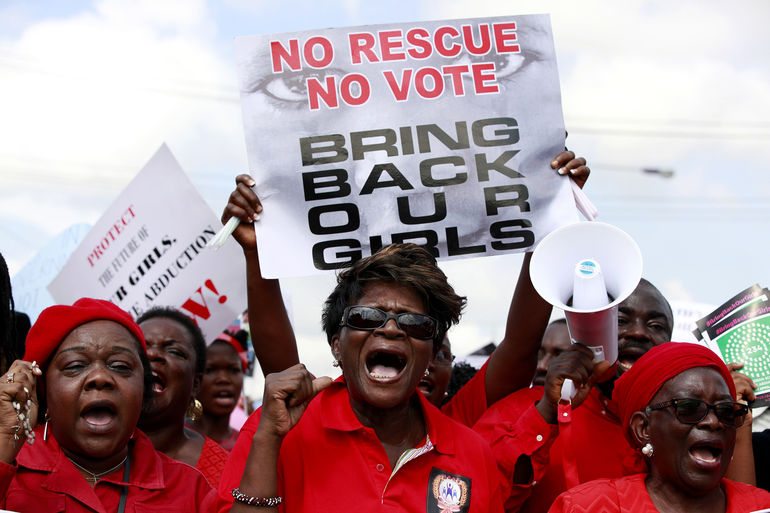EDITORIAL
The Baltimore Sun.
It’s now been more than two weeks since Islamic militants attacked a girls’ boarding school in remote northeast Nigeria and abducted more than 300 young women between the ages of 16 and 18, carrying them off into the bush on a convoy of buses and trucks.
But apart from a few dozen students who managed to escape in the first few hours after their capture, not a trace of the girls has been found so far. And the kidnappings haven’t stopped: Today U.N. officials announced that at least eight more girls were seized by extremists in the same part of the country as last month’s abductions.
The parents of the missing girls have despaired of the Nigerian military’s ability or desire to rescue their children and have called on the United Nations and international aid groups for help.
The Obama administration needs to respond by doing whatever it can to assist Nigerian authorities find and free the estimated 276 young women who remain captives, not only because it is the right thing to do but because it is in the United States’ interest to disrupt the lucrative trade in human trafficking that is helping fund a dangerous group the State Department lists as a terrorist organization.
Last week the leader of Boko Haram, the group which claimed responsibility for the attack, threatened to sell the girls as “wives” to its militants for as little as $12 each.
Survivors of previous such attacks have spoken of horrific abuses they suffered at the hands of their captors, which included being forced to serve as cooks, porters and sex slaves for insurgent fighters who enforced discipline through gang rapes and beatings.
The group’s latest attack was clearly intended to sow terror among parents of school-age children and discourage them from allowing their daughters to seek the kind of education that might better their lives.
Boko Haram, whose name roughly translates as “Western education is forbidden,” has been waging an increasingly violent insurgency against Nigeria’s central government since 2009 aimed at establishing an Islamic state and the imposition of Sharia law in the predominantly Muslim northeastern part of the country.
Investigators think it may also have links to other radical jihadist groups, such as al-Qaida in the Islamic Magreb, from which it draws inspiration, arms and tactics, and that it may get funding from Islamic extremist networks based in Saudi Arabia.
Like the Taliban in Afghanistan, Boko Haram believes Western-style schooling, especially for women, is a corrupting influence on the society it seeks to build and a legacy of the country’s colonial past that must be eliminated.
In recent years it has burned schools and killed students, attacked police stations and government military posts, recruited child soldiers as young as 12 and carried out dozens of kidnappings and assassinations.
Among its most frequent targets have been government security officials and mainstream Muslim clerics who criticize its nihilistic philosophy and harsh tactics as incompatible with the spirit of Islam.
But until now there has been no high-profile incident like the Taliban’s shooting of 15-year-old Malala Yousafzai in 2012 to galvanize international media attention on the war Islamic extremists in Africa have been waging on girls’ education.
Secretary of State John Kerry, who called the kidnapping of the Nigerian schoolgirls “an outrage and a tragedy,” has indicated that the U.S. is watching the situation in Nigeria closely and that the administration stands ready to help authorities there search for the missing students if asked.
The kidnappings are a touchy political issue in Nigeria at the moment, with President Goodluck Jonathan coming under fire for his government’s ineffectual efforts to rescue the students and facing charges that his military lacks the competence or willingness to find them despite a brutal crackdown in the area by security forces earlier this year.
Meanwhile, many parents fear a clumsy government assault on the insurgents could put the missing girls in even greater danger than they are in now.
But it’s clearly in the administration’s interest to seek to foil such attacks in the future, which would only strengthen the insurgents’ hold over the area where they operate and invite deeper involvement by other jihadist groups using similar tactics.
Human trafficking is notorious in the region both as a means of terrorizing the population and as a source of funding for radical Islamist groups.
If for no other reason than that the U.S. can hardly afford to ignore the threat it poses.














































































































































































































































































































































































